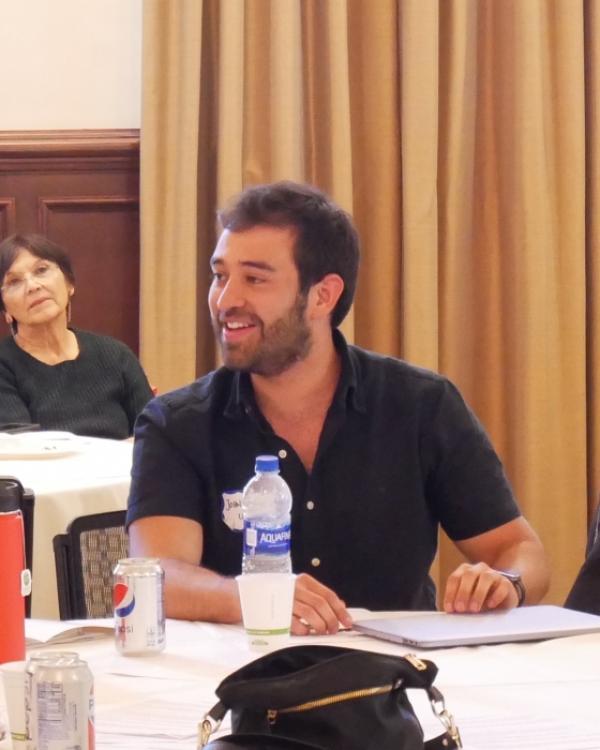
John Cano Barrios will be graduating with a M.A. from the Department of Education. Prior to attending UC Santa Barbara, his experiences teaching at Universidad del Norte (Barranquilla) in Colombia helped shape his research interests, which focus on how technology can promote engagement and motivation for learning, as well as in designing curriculum to foster digital literacy in students.
GGSE: Share your research interests with us, and why they’re important to you.
Cano Barrios: I am interested in how technology, when wisely integrated into the curriculum, can become a powerful ally to enhance teaching and learning processes. This is important to me given that we cannot ignore how omnipresent technology is, and also because researchers have identified problems when it comes to the curricular integration of technology: (a) educators tend to ignore given they believe they are not useful to learn, (b) they do not feel confident enough how to use them (self-efficacy), (c) integrating technology may imply changing their teaching approach (from direct instruction to a more student-centered approach), or (d) lack of institutional support, which refers to the lack of aid to educators from staff or consultants in the institution (K-12 or higher education).
GGSE: If you could give one piece of information that you wished every person knew and remembered from your research, what would it be?
Cano Barrios: I do strongly believe that education is about communication and connections. Being knowledgeable about a subject matter is indeed important, but the real change or impact one can do in their students depends on soft skills. Engagement in a classroom (students and educators), from my perspective (and teaching philosophy), should be the main goal of an educator. Learning without engagement can hardly happen, showing students that you do care about them and that you are passionate about what you do is a key component and one of the starting points of fostering engagement.
GGSE: What do you hope to do after earning your Ph.D.?
Cano Barrios: I do love research and teaching, but lately, I have been exploring the "pedagogical support" side of my work. Working at the McEnroe Reading Clinic as the Instructional Technology Coordinator has given me the chance to see how powerful and fulfilling is to support—from the backstage—pedagogical practices and initiatives. I taught in a University for three years before coming to UCSB, so now I am really enjoying the phase I am working on (the "consultation" and doing research). So, in sum, I can be happy with a faculty position or a consultation position (as long as it allows me to do research [laughter]).
GGSE: What piece of advice would you pass on to future graduate students in the Gevirtz School?
Cano Barrios: I believe my advice would be to follow your passion. I think the Ph.D. program allows you to build your own path, so I would strongly recommend having a vision of what would you like to do research on. It does not have to be a totally clear idea—because some new ideas may come your way while you study—but having a big picture helps you see where to go. Another thing I would strongly recommend is to be open and not afraid of communicating with your advisor. They should be open enough to help you keep you on track, I did build a strong relationship with my advisor since the first quarter and that helped me solve any situation that emerged along the way. Finally, for areas of research/work, it is good to explore outside of the Education Department to contact people that do work related to your areas of interest. I have done that and it has resulted in an interesting way to have a better picture of your area of work.
GGSE: Is there anyone in the Gevirtz School you would like to thank?
Cano Barrios: I am very grateful to my advisor (Dr. Arya) and the other members of my committee (Dr. Chun and Dr. Brenner) since it is because of the work that they do that I have come to meet many great colleagues. Also, working at the Reading Clinic and being part of the UC-Links team at UCSB (Dr. Duran, Dr. Brenner, Dr. Arya, Jasmine Nation, Stephanie Arguera, Sos Nazaryan) gave me the opportunity to work for the Community in Santa Barbara, I had a great experience coordinating the LEAFY project (2018-2019) along with graduate student Sos Nazaryan, and I cannot be more grateful to show that the work we have been doing has made an outstanding impact, not only on the kids of the community but also in the undergraduate students who are aiming for an education minor in our department.